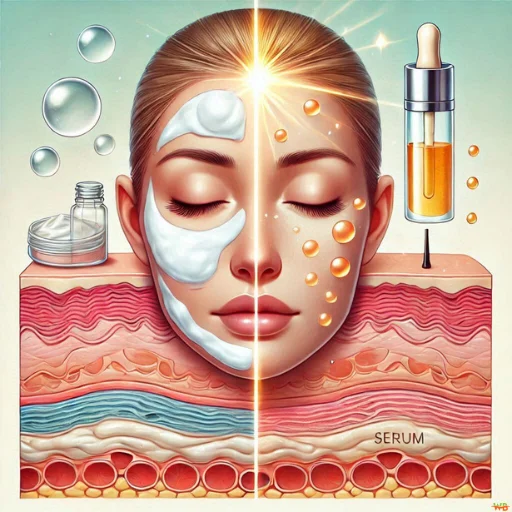
If you’ve been paying attention to skincare trends, chances are, you’ve noticed that serums are everywhere. These little bottles of magic, known as serum powerhouses, are packed with concentrated active ingredients that target specific skin concerns. This shift has turned serums into a beloved staple for achieving healthy, glowing skin.
Does that mean you need serums, too? It sure does! However, make sure to pick the right one for your specific skin type. Choosing a serum is all about understanding your skin’s needs and selecting what serum works with it, not against it.
Understanding Your Skin Type
Identifying your skin type is the first step in selecting a serum that will deliver the results you’re after. There are five main skin types:
- Dry skin – Characterized by dryness, occasional scaling, and a lack of natural glow.
- Oily skin – Shiny, especially around the T-zone, and may be prone to breakouts.
- Combination skin – With combination skin, the T-zone tends to be oily, while other areas of the face are more prone to dryness
- Sensitive skin – May exhibit redness, stinging, or heightened sensitivity.
- Normal skin – A well-balanced skin type that’s typically smooth and blemish-free.
Once you know your skin type, you’ll better understand which ingredients are right for you. For instance, if you have dry skin, your serum should focus on hydration. And if your skin leans towards oily, you’ll want a serum that helps control sebum production.
Key Ingredients to Look for in Serums Based on Skin Type
For Dry Skin
Look for hydrating heroes like hyaluronic acid and glycerin which draw moisture into the skin and keep it there. These ingredients work wonders at plumping and restoring elasticity, ensuring your skin feels soft and nourished. You’ll want a serum that’s hydrating but not greasy, so choose one that balances moisture without leaving you feeling weighed down.
For Oily Skin
Serums with niacinamide or salicylic acid are great for oily skin. Niacinamide works to balance oil production and soothe irritation, while salicylic acid penetrates pores to remove excess oil and reduce breakouts. These ingredients help maintain a matte finish without causing dryness or irritation.
For Combination Skin
Balancing both dry and oily areas can be tricky, but a serum with chamomile or tea tree oil can help. These natural ingredients provide soothing moisture to dry areas while controlling oil and fighting blemishes on the oilier parts of your face.
For Sensitive Skin
If your skin is sensitive, look for calming ingredients like aloe vera and calendula. These soothing ingredients work to reduce redness, inflammation, and irritation while gently hydrating and protecting your skin.
Why Serums are More Effective Than Traditional Moisturisers

Traditional moisturises have served us well, but serums are changing the landscape of skincare. They contain smaller molecules that allow the formula to penetrate deeper into your skin. This is different from the thicker moisturisers, which are designed to lock in moisture. Serums can deliver active ingredients directly to the skin’s layers where they’re most needed.
While moisturisers help keep your skin hydrated and protected, serums work beneath the surface, addressing the root causes of your skin concerns and giving you faster, more noticeable results.
The Right Serum for Targeting Specific Skin Concerns
Fine Lines and Wrinkles
Serums containing retinol, peptides, or Vitamin C are your best bet. Retinol helps stimulate collagen production, smoothing out fine lines, while peptides encourage skin regeneration. Vitamin C, known for its anti-ageing properties, also fights free radicals and helps brighten the complexion.
Hyperpigmentation and Dark Spots
If you’re battling dark spots or uneven skin tone, serums with Vitamin C or alpha arbutin are fantastic. These ingredients work together to brighten your complexion, fade dark spots, and leave your skin looking more radiant and even-toned.
Acne and Breakouts
For those pesky pimples, serums with salicylic acid, tea tree oil, or zinc can help control breakouts. Salicylic acid fights acne-causing bacteria and helps exfoliate, while tea tree oil soothes inflammation. Zinc regulates oil production and helps heal blemishes.
Achieve healthy, radiant skin by choosing the right serum that works best for your skin type. Time to transform your skincare routine today!

